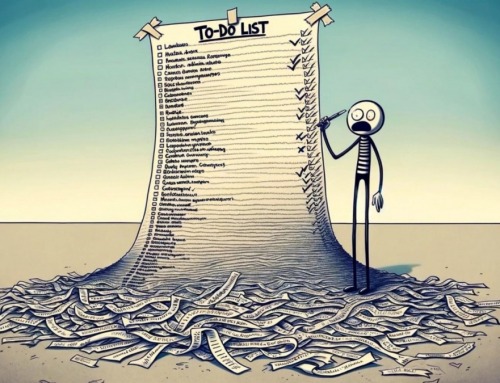In his influential book, The 7 Habits of Highly Effective People, Stephen R. Covey outlined the difference between principles and values. In Covey’s view, principles are rules or laws that are permanent, unchanging, and universal in nature. Values are internal and subjective, and they may change over time.
What are principles?
For Covey, principles are self-evident and—as part of most traditions and philosophies over the ages—they’ve been woven into the fabric of societies throughout human history. They often concern human behavior and govern interactions between people.
Principles represent an objective reality that transcends cultures and individuals. For example, Covey cites various principles, including fairness, integrity, and honesty. He declared, “A principle is a natural law like gravity. If you drop something, gravity controls. If I don’t tell you the truth, you won’t trust me; that’s a natural law.”
There are certain principles that transcend cultural differences and do not change over time. They determine the ultimate outcomes or consequences of behavior and actions, as much as gravity determines that something will fall when dropped.
What are values?
In contrast, values are beliefs and opinions that people hold regarding specific issues or ideas, and are ultimately internal, subjective, and malleable. They may change as demands or needs change. If a given belief or opinion is something that might be altered if the conditions are right, then it’s a value.
Values are important in expressing our individual beliefs and opinions, and they can be used tactically to accomplish certain objectives based on our current circumstances, demands, and needs. Values can ultimately reflect or determine the current but potentially alterable goals that we have in our professional, family, and personal life.
Using principles
If you’re looking to create a timeless sense of purpose and to shape the overall mission of your life, then you should use principles. Establishing a set of principles creates a compass to which you can refer whenever something is in doubt or you need to take a stand or evaluate any particular opportunity, behavior, or situation.
Moreover, principles can ultimately drive your values and goals. Principles can help you determine your goals and values and help you choose between them when confronted with conflicting issues or circumstances.
You can build a personal value system based on principles, which will help you avoid running afoul of their natural consequences. And principles can be a convenient and comforting reference point so you never feel uncertain or find yourself searching for an answer.
Increase your effectiveness with PlanPlus Online.
A productivity system for leaders.

Using principles
If you’re looking to create a timeless sense of purpose and to shape the overall mission of your life, then you should use principles. Establishing a set of principles creates a compass to which you can refer whenever something is in doubt or you need to take a stand or evaluate any particular opportunity, behavior, or situation.
Moreover, principles can ultimately drive your values and goals. Principles can help you determine your goals and values and help you choose between them when confronted with conflicting issues or circumstances.
You can build a personal value system based on principles, which will help you avoid running afoul of their natural consequences. And principles can be a convenient and comforting reference point so you never feel uncertain or find yourself searching for an answer.
Using principles in setting goals
When conducting personal planning and setting goals, keep in mind this distinction between principles and values, and consider how both of them can be useful. Consider identifying and outlining the universal principles that you want to embrace and that you want to shape your overall mission.
Then, as you identify the things you value most and the goals you want to pursue in your personal, professional, and family life, you can use these principles as a reference point. You can build your values and goals according to these principles, or you can use them to help you realize where your current values, goals, and behavior may be inconsistent with universal realities about human behavior and interactions.
Thus, even if you find that you’ve not always been living up to the principles that you want to embrace, you can make meaningful changes and ultimately incorporate those changes into your values and goals.
Covey pointed to this using the example of honesty and truthfulness. “If I tell you the truth consistently and try to live it, and apologize when I don’t, and try to get back on track, then I’m living a natural-law repentance, making improvements, showing change.”
Ask yourself…
What are the universal, unchanging principles that you can clearly identify? What are the values that you now hold? Do your current habits reflect those values and, ultimately, do your habits and values reflect the principles that transcend current circumstances and can provide a purpose and mission for your life?
With a proper understanding of the differences between values and principles, you can address all of these questions and use the answers to guide you in all of your planning and actions.







